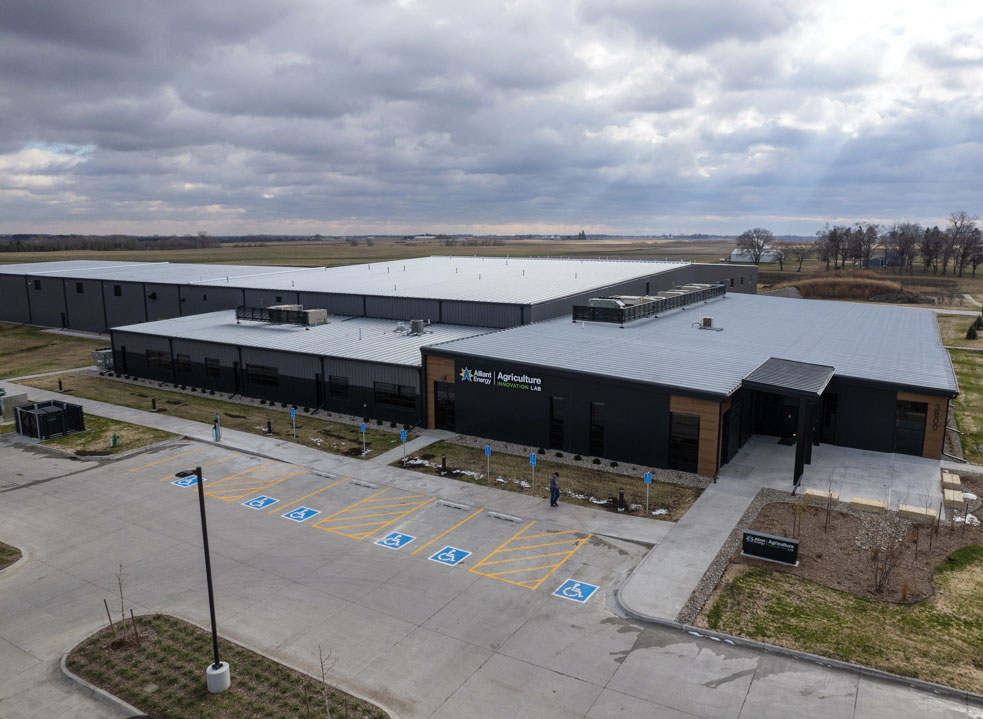Central Iowa legal professionals share precedents, policies, court decisions affecting business, consumers in 2024

Mike Mendenhall Mar 29, 2024 | 6:00 am
9 min read time
2,250 wordsBusiness Record Insider, Government Policy and LawLegal precedents and code provisions in Iowa and the U.S., as well as the social, economic and societal sensibilities that move laws, are in constant evolution.
Legal professionals, educators and counselors monitor the wholesale and subtle changes made in the courts and in capitols across the U.S. to better advise their clients and teach the next generation of lawyers.
The Business Record recently asked practicing attorneys and legal professionals in Iowa to provide their insight on what they believe are the most important legal trends and developments for business leaders to know in 2024.
We asked respondents to consider trends in their areas of expertise that will influence local, state and national policy and the everyday lives of Iowans. Their answers considered real-world case examples, classroom strategies, developments at the state Legislature and federal policies that are affecting the law and legal profession.
The responses included:
- rising bankruptcy filings.
- how to approach talent recruitment in the field of law.
- the effects of high interest rates on consumers and business debtors.
- property division issues due to the rise in common law marriages.
- recruitment challenges related to immigration law.
- pushback against diversity, equity and inclusion policies.
- remote work and protecting trade secrets.
- artificial intelligence in the legal profession.
- federal estate tax exemptions.
- corporate transparency.
- income tax law changes.
Our goal is to bring awareness to the legal trends that may affect the lives and businesses of Business Record readers.
— Mike Mendenhall, Associate editor, Business Record
Responses have been lightly edited for clarity.
Bankruptcy and corporate law

Bankruptcy filings are on the rise
Diane Lourdes Dick
Charles E. Floete Distinguished Professor of Law, University of Iowa College of Law
Nationwide, bankruptcy filings have increased for consumer and business debtors. The highest rates of increase are among business debtors seeking to reorganize under Chapter 11 of the U.S. Bankruptcy Code, including small-business debtors filing under the new subchapter V. While filing rates had been declining for more than a decade, the trend reversed in 2023. The combination of inflationary pressure, high interest rates and the withdrawal of pandemic-era support seems to have exposed financial cracks in the economy.

Culture, ongoing battle for talent
Chris Sackett
Partner, BrownWinick Law Firm
Lawyers are increasingly mobile and are very willing to move from one firm to another and from one geographical area to another. The demand for high-end legal services is there, but there has never been a greater need to, first, retain and develop your most talented people and, second, attract more talented people. Along with a great client base and strong reputation for outstanding service, culture is the primary differentiator among firms when it comes to attraction and retention. That was not always the case, and many firms have been slow to figure this out. Simply telling current and prospective attorneys and non-attorneys that you have endless piles of complex legal work and will pay them top dollar to do it is not enough (and never should have been). Firms need to listen, mentor/develop, empower and reward their people. Opportunity, work-life balance, health and wellness are all part of the equation. Many in the legal industry will tell you AI is the biggest development, and it will undoubtedly be transformational. Even with AI, people are the lifeblood of successful law firms. A vibrant and healthy culture is what drives attraction, retention, engagement and success.

High interest rates will continue to cause problems
Joe Schomberg
Assistant professor of law, Drake University Law School
Even as inflation seems to be slowing down some, a sustained high-interest rate environment appears likely. Accordingly, the availability and cost of capital will remain major issues for corporate debtors. While these pressures likely affect certain capital structures more than particular industries, keep an eye on highly leveraged companies in industries that may be facing reduced revenues, such as health care (reimbursement rate problems) and commercial real estate (higher vacancy rates). As maturities come due on existing obligations, it will be difficult for some of these companies to refinance because of the high interest rates and tight credit market. This environment will present a lot of opportunities for creative counsel representing commercial debtors and creditors alike.
Family Law

Property division issues, potential for more common law marriage claims
Tyler Coe
Shareholder attorney and chair of family law group, Dentons Davis Brown PC
As more couples do not find formal marriage necessary to ratify their mutual commitment to one another, property division issues will come to the forefront. Traditionally, property division issues have involved only married couples, not those couples cohabitating. Now, never-married couples will need to file property dispute actions determining ownership, if any, of property. As committed couples do more together – buy homes, purchase vehicles, hold themselves out as spouses, and more – the complexities associated with these life choices are likely to lead to a spike in common law marriage claims. There are many myths about common law marriage in Iowa – especially the elusive claim that seven years together means you are married (not true!) – that will only cause more fighting between separating couples and, perhaps, more litigation in the courtroom.
Marriage and gifted and inherited property
Tyler Coe
Shareholder attorney and chair of family law group, Dentons Davis Brown PC
Iowa has a long history of case law regarding gifted and inherited property. As wealth continues transferring from elder generations to younger generations, the manner in which the property is gifted and/or inherited matters. Is the check made out to one spouse only or both spouses? Does the inheritance one spouse received that they then put into purchasing rental properties for extra family income revert to the inheriting spouse? As one of the greatest generation-to-generation wealth transfers of all time occurs, these questions will only become more complex. This will require higher specialization, especially when it comes to married couples and lawyers advising divorcing clients. Finally, this also presents issues where lawyers serve as family advisers, bridging the gap of business ownership from one generation to another.
Immigration

Changing nature of recruitment creating immigration-related compliance challenges
Lori Chesser
Senior shareholder and immigration department chair, Dentons Davis Brown PC
Remote work has made more hiring a national – and sometimes international – endeavor, often triggering compliance with federal and other states’ laws. A lesser-known federal agency, the Immigrant and Employee Rights Section of the Department of Justice (IER), has become more assertive as well. Tasked with policing I-9-related (employment eligibility verification) discrimination, it has brought enforcement actions against recruiting platforms using AI if work-authorized immigrant applicants are screened out. It has found unlawful discrimination in firms trying to comply with export control laws by limiting applicants to nationalities not needing a license. On the flip side, it has fined employers who it believes are preferring immigrant workers in a number of scenarios, some surprising to immigration lawyers. IER enforcement is not limited to national ads, but those ads are higher profile. States (and even some localities) are passing wage transparency and other laws that cover employees living within their boundaries and some claiming to cover all recruiting ads. Although these laws reach beyond immigration compliance, they are implicated in immigration processes.
Labor and Workplace

Pushback against DEI
Nola Cartmill
Chief diversity officer and legal counsel, Holmes Murphy
Following the Supreme Court decision in Students for Fair Admissions Inc. (SFFA) v. President & Fellows of Harvard College and SFFA v. the University of North Carolina, which effectively ended race-conscious admissions programs, last summer, we have seen an uptick in cases challenging various [diversity, equity and inclusion] programs in private organizations, despite the decision not addressing employment programs. I believe this trend will continue particularly as we see legislation being proposed and, in some cases, passed regarding these same topics. This trend will have an effect on how organizations frame their DEI programming, but unlike many headlines you see, is unlikely to stop organizations from implementing and continuing to operate their DEI programs.

New challenges for employers in protecting confidential information, trade secrets
Jo Ellen Whitney
Senior shareholder, Dentons Davis Brown
Remote work, while loved by many employees, creates new and complex issues for data security. This is compounded by a wide array of legal changes and practical concerns. The Federal Trade Commission still has outstanding a proposed rule change that negates the use of noncompetes in most instances. The National Labor Relations Board has a series of memos and more recent enforcement actions that prohibit both noncompetes and confidentiality agreements. With a more mobile and remote workforce who in many instances has access to everything and a printer, it can be difficult for an employer to ensure the security of its data from competitors and others, especially without these traditional solutions. This is further compounded by the difficulty in getting the information back once it has been taken, with few recourses other than the time-consuming process of filing a lawsuit. Employers are in a position to put more time and energy into trying to protect data under these circumstances.

The use of AI in the delivery of legal services
Beth Coonan
Shareholder, Dentons Davis Brown
It’s here. It’s happening, and I’m optimistic about the possibilities. AI can be incredibly helpful for document drafting and research but isn’t a substitute for sophisticated legal analysis and good advice. Consumers of legal services should be talking with their trusted counsel about how they are using AI to ensure it’s being deployed in a manner that will yield efficient and effective results.
Wills, trusts, estates and taxes

Significant cuts in Iowa individual, corporate income tax rates continue
Nicholas Roby
Clinical professor of law and director of the Entrepreneurial and Transactional Clinic, Drake University Law School
Major state income tax reform continues to be phased in, in 2024 and beyond. Top Iowa individual and corporate rates in 2024 will be 5.7% and 7.1%, respectively, compared with 8.58% and 12% as recently as 2020. Also, some Iowa taxpayers will be pleasantly surprised to find that virtually all forms of retirement income are exempt from Iowa tax for the first time for returns filed in 2024 (for the 2023 tax year). Iowa tax rates will continue to decrease annually until the top individual and corporate rates fall to 3.9% and 5.5%, respectively. To illustrate the impact of these tax cuts, consider a corporation with $2 million of Iowa taxable income. Its Iowa income tax bill for 2024 will be approximately $140,000, compared with nearly $240,000 in 2020 – a 40%-plus reduction. A corporate executive with $300,000 of Iowa taxable income will pay approximately $17,000 of Iowa income tax in 2024, compared with nearly $24,000 in 2020 – a 30% reduction. The retired executive whose Iowa income consists solely of $200,000 of pension and 401(k) distributions will pay no Iowa tax at all in 2024 versus approximately $15,000 in 2024. More modest income earners in Iowa will see smaller decreases in their state tax bills. For example, a worker with Iowa income consisting solely of $75,000 of wages will pay about $4,000 of Iowa taxes in 2024 versus $4,400 in 2020, a 10% reduction. State receipts and funds continue to be strong even with the rate reductions, reflecting the robust national and Iowa economy. It remains to be seen if Iowa can maintain governmental services at historical levels as rate reductions continue and when an eventual slowdown in the economy occurs.

Planning for the federal estate tax exemption sunset
Breanna Young
Shareholder attorney, Dentons Davis Brown PC
The amount a person can leave to their heirs without any federal estate tax is at an all-time high but is likely to be cut in half soon. In 2024, the federal estate tax exemption amount is $13.61 million. This means that a person dying in 2024 generally can leave up to $13.61 million worth of assets to their heirs without incurring any federal estate tax — a big deal since the top federal estate tax rate is 40%. This exemption amount is set to increase in 2025. On Jan. 1, 2026, the law setting the exemption amount is scheduled to sunset. This means unless Congress acts beforehand, the amount a person dying in 2026 can leave to their heirs without incurring any federal estate tax will be about $7 million. Many business owners are taking advantage of the current $13.61 million exemption, which also applies to gifts made during a person’s lifetime, to move as many assets out of their estate as possible. This can be done by making gifts to heirs and charities, creating certain types of trusts, and other techniques. Planning options will likely be more limited starting in 2026, so the time to act is now!

Corporate Transparency Act
Natalie Lynner
Professor of law, Drake University Law School
On Jan. 1 of this year, the Corporate Transparency Act became effective, requiring small and private companies to report identifying information of beneficial owners of specific entities to the Financial Crimes Enforcement Network (FinCen). Proponents of this law argue that it aims to reduce money laundering, combat corruption and protect U.S. national security. It was passed in 2021 with bipartisan support. In March 2024, a U.S. District Court in Alabama held that the bill was unconstitutional and gave the federal government too much power over corporate entities. We will continue to watch the appeal and whether FinCen delays its reporting requirements. Currently, all businesses that make less than $5 million in annual sales and have fewer than 20 employees must report to FinCen by Jan. 1, 2025. Newly formed businesses in 2024 have 90 days to report.

Mike Mendenhall
Mike Mendenhall is associate editor at Business Record. He covers economic development, government policy and law.









